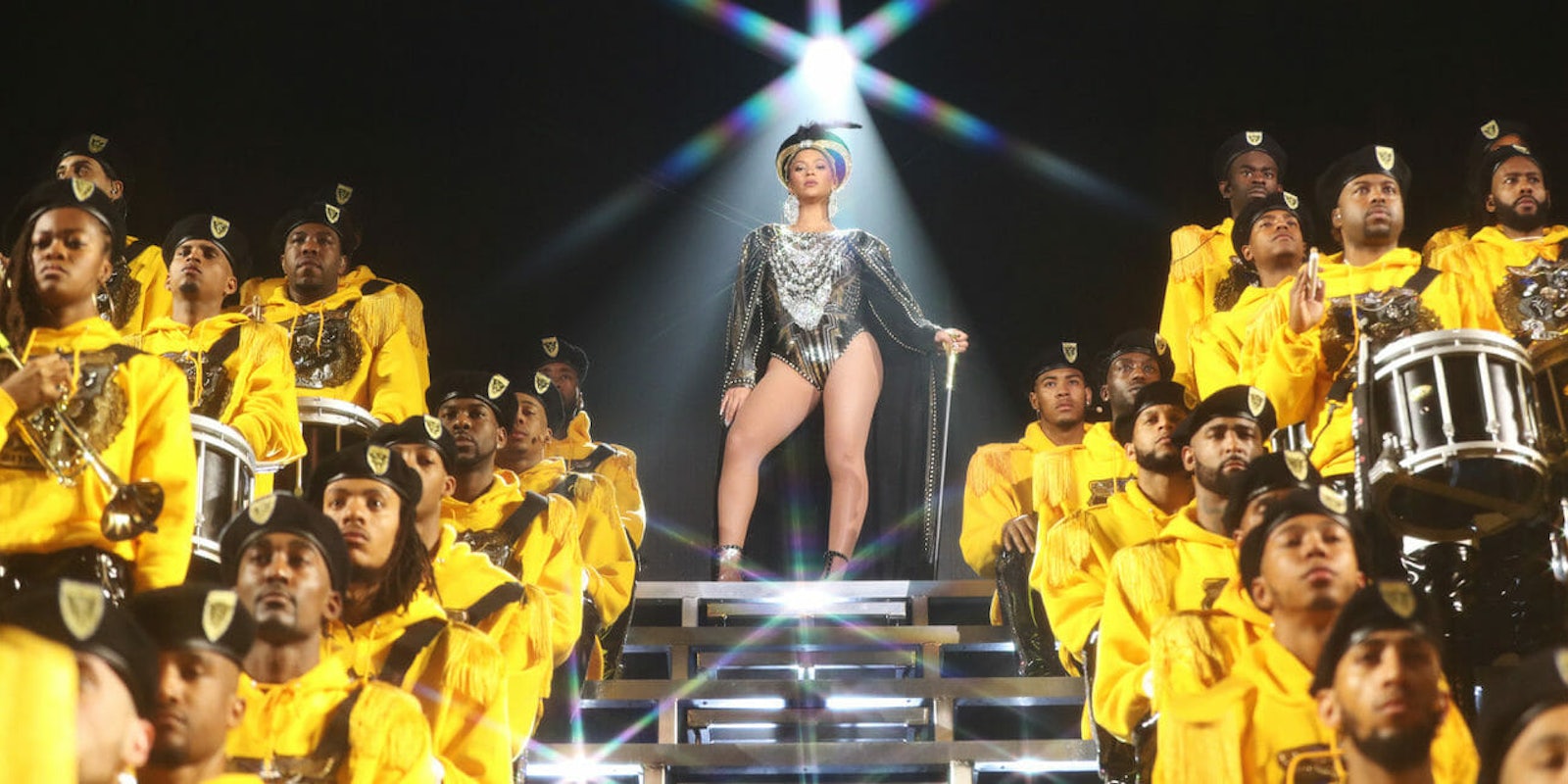Living in a generation where everything seems to come instantaneously can skew the reality of our lives—and how we get to the end goal. Everything serves to paint an airbrushed picture of life for ourselves, those we know, and the celebrity culture of those we admire. We can only see the masterpiece of the ending without fully knowing all that went into its creation: money, time, energy, lack of sleep, etc.. Yet Beyoncé, the star who many of us believe can do no wrong, challenged our perceptions of perfectionism by calling us out in Homecoming, the year’s best documentary.
Here Beyoncé lets us see her work ethic, trials, life changes, and the scope of what it is to be a Black woman in America. The lesson? There’s constant work to be done.

She even mentions that sometimes the work bears the expense of looking stupid or making mistakes, diluting everything we often believe about celebrities of her stature. And, as most of us often only see the end product of the shows, Homecoming honestly tackled what it is to show up and actually go through a process from beginning to end.
Homecoming‘s theme of taking the long journey is front and center. From the music to the storytelling, Beyoncé displayed why she is the baddest in the game. As the film unfolds you get glimpses of the final product—2018’s jaw-dropping, festival-hijacking live show that became known as Beychella—and then it takes you back over an eight-month rehearsal period.
We learn that Beyoncé, like many Black women in the United States, battled with high blood pressure, resulting in an emergency Cesarean section of her twins. Yet, she still made it her business to begin crafting her Coachella performance and showing up to work in order to make it happen on behalf of others.
Making the transition of juggling being a mom of one to three also showed us how much women are tasked with balancing. The work necessary to provide for your children and their futures is an ongoing sacrifice and although our perception may be that she is rich and has it easier, it still requires the same fundamental legwork. She took it even further by placing herself on a strict diet of removing dairy, sugar, alcohol, carbs, bread, and meat ahead of Beychella.
“There were days that I thought, you know, I’d never be the same. I’d never be the same physically, my strength and endurance would never be the same. In the beginning, it was so many muscle spasms. Just, internally, my body was not connected. My mind was not there. My mind wanted to be with my children. What people don’t see is the sacrifice. I would dance, and go off to the trailer, and breastfeed the babies, and the days I could, I would bring the children,” she says in the documentary.
We also get to see the dynamic of a once-untainted love story between her and husband Jay-Z. For years, the couple was deemed hashtag “goals” on social media, until the couple’s public admittance of constant infidelity. The doc deconstructs that final, polished product of them onstage. Beyoncé and Jay-Z had to do work—therapy, counseling, and creating art that purged their raw emotions for us to see, hear, and ultimately feel. As they perform Beyoncé’s hit “Dejavu” in the doc, it was apparent that managing the hardships, perceptions, and deceptions has taken its toll—but also that “anything worth having is worth fighting for.”
Homecoming allowed us to see that there’s no such thing as skipping steps, not even for Beyoncé. We do ourselves a disservice by expecting otherwise and ignoring the building blocks and tools required for us to achieve goals. The journey to Beychella was a meticulously paved road that struck a nerve with fans. As a pure concert film, it was an epic film that blew up a critical moment in pop culture.
In the end, she put it best: “As a Black woman, I used to feel like the world wanted me to stay in my little box. And Black women often feel underestimated. I wanted us to be proud of not only the show, but the process. Proud of the struggle. Thankful for the beauty that comes with a painful history and rejoice in the pain. Rejoice in the imperfections and the wrongs that are so damn right.”
READ MORE:

